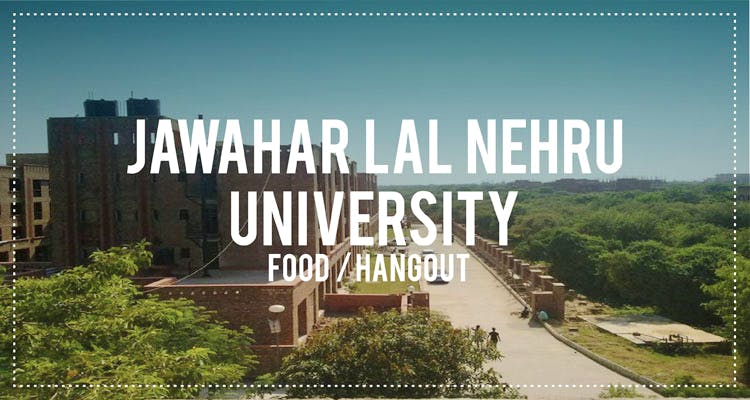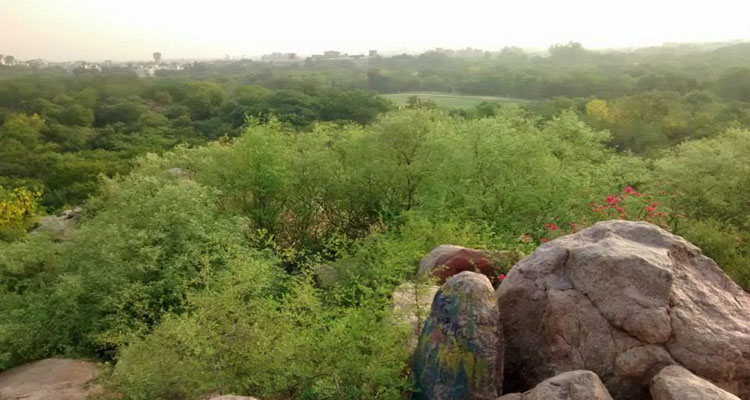By Neha Simlai
For the uninitiated, JNU is where left of centre intellectuals hang out, in their naturally dyed khaadi outfits, carry jholas, drink cheap tea and spend time discussing a spectrum of topics ranging from existential angst to the civil services.
Established in 1969, the university has been the hotbed of student politics, pedagogical deliberations and ideological debates. In all honesty, if there was a singular way of defining JNU, it would have to be alternative and effortlessly ‘cool.’
An article in the Hindustan Times, dated January 2013 says, “Equality, liberty and fraternity – ideas of citizenship from the French revolution – have always been followed in their true spirit at Jawaharlal Nehru University, where every student is a citizen.” Spread over 1019 acres, JNU is “home” to over 8000 national and international students, living between17 hostels.
The Vibe |
Once you do set foot on the JNU campus, you realize rather quickly that figuratively speaking the rather extensive JNU is actually a small place - everyone is welcome, and everyone knows everyone else. People are by and large non-judgmental, and the vibe is uncomplicated and easygoing. The space itself changes you in a strange way, you come across a diverse set of people from different parts of India and the world, and you end up finding common ground and sharing spaces – it opens you up to the world and it’s varied experiences.
Life at JNU |
The JNU ‘lifestyle’ is unusual, and mostly nocturnal. During the day you hardly see students on the roads or at the dhabas, but at night, all the political and other activities pick up steam. That's why a lot of dhabas, like Ganga and Ram Singh’s, are only functional post sundown. The dhabas provide the space and logistics for JNU students to stage protests, think “freely”, engage in politics, learn languages, join bands or clubs – debating, birding, dramatics, photography, film, art appreciation and more - kick-start businesses, run organizations and get deeply involved with the community – all while having a great time and evolving as individuals.
Food plays a huge role in almost all experiences, which explains why dhabas are the nerve centers of JNU campus-life. These roadside, open-air haunts, and other hole in the wall joints make for all-purpose rendezvous points for students after class hours. From the afternoon till well past midnight, the dhabas witness the intricacies of almost all ‘alternative’ experiences at JNU.
Top Food Picks | Here’s where we’d eat at JNU, in no particular order of preference {mainly because we’d probably try to hit them all!}
- Chicken Tikka at 24×7 Food Court {near Sabarmati Hostel}.
- Tea in the winters and ‘banta’ {lemon soda} in the summer, at Ganga Dhaba {on the right, at the main entrance}.
- Fruit Beer and Alungsa {liver} Fry at the North Eastern Dhaba {near Sabarmati Hostel}. This is popularly known as the Chinese dhaba.
- Rava Dosa at the Library Canteen {the multistoried Central Library building}.
- Keema Curry and Paratha at School of International Studies {SIS} canteen.
- Doodh Patti at Tefla’s {opposite Narmada Hostel}.
- Lamb Dry and Shaphalay at Kiechas {Shop Number - 8, Shopping Complex}.
- Fish Curry and/or Mourola Maachh Bhaja done by Shambhu Da at the Staff Canteen.
- Jalebis at Chowdhury ji's shop {KC market area}.
- Mutton Seekh Kabab at Mughal Darbar {opposite Lohit Hostel}.
- Considered the best chicken in JNU, try the Tawa Chicken at Ram Singh’s Dhaba {right next to Ganga Dhaba}.
Hang Out |
When you’re done eating, hang out {you’ll need to} at Parthasarathy rocks! PSR is a beautiful walk on a muddy path. Take a walk here in the early hours of the morning this month if you can; there’s still some dew left on the surrounding green cover. PSR is a uniquely JNU experience, and makes for an unconventional and strangely elevating hangout.
Other JNU signatures |
If you’re visiting a friend at JNU, you’re going to find enough to do, with or without your friend!
- Attend ‘Cultural Night’ at any of the hostels
- Play Holi JNU style, on campus
- Eat at one of the International Food Festivals
- Attend one of the many conferences, from one of the many diverse subjects these cover. Information about these is usually available on department notice-boards.
- Hang out on the Football field
- Attend a ‘crazy party’ at Brahmaputra hostel
- Go birding on a Sunday in JNU


